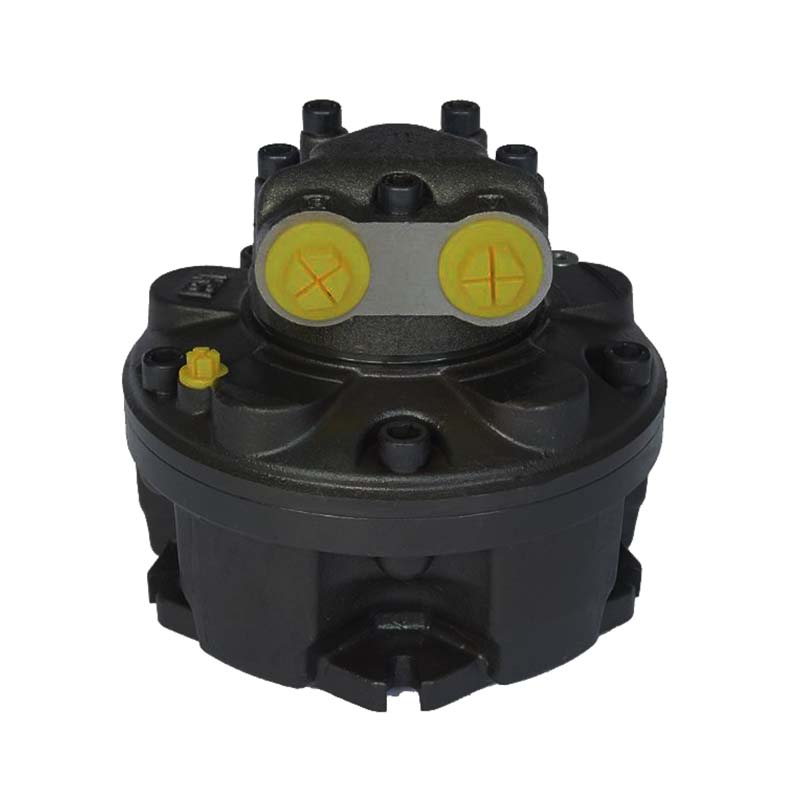Introduction To Different Types of Hydraulic Motors
Introduction
hydraulic motors are essential components in hydraulic systems, converting hydraulic energy into mechanical power.
They find widespread use in various industries and applications. In this article, we will explore the
purpose of hydraulic motors, discuss their benefits, and delve into the different types available.
What is the Purpose of Hydraulic Motors?
Hydraulic motors are designed to convert hydraulic pressure and flow into rotational mechanical power.
They provide the necessary torque to drive machinery or equipment in a wide range of applications.
The primary purpose of hydraulic motors is to generate rotary motion for tasks such as driving conveyor belts,
rotating machinery parts, operating winches, powering construction equipment, and more.
Benefits of Using Hydraulic Motors
Hydraulic motors offer several Advantages that make them a preferred choice in many industries:
1. High Power Density: Hydraulic motors provide high power output relative to their compact size and weight.
This allows for efficient utilization of space while delivering substantial torque.
2. Variable Speed Control: Hydraulic motors offer excellent speed control capabilities through precise
regulation of fluid flow rates or pressure adjustments. This flexibility allows
for optimized performance across different operational requirements.
3. High Torque at Low Speeds: Hydraulic motors deliver significant torque even at low speeds,
making them ideal for heavy-duty applications that require substantial force output.
4.Excellent Load Handling Capability:
Hydraulic Systems featuring motors can handle varying loads with ease due to their ability
to maintain constant torque regardless of changes in speed or load conditions.
5.Smooth Operation:
Hydraulic motors operate with minimal vibration,
ensuring smooth and consistent performance throughout their operational range.
Types of Hydraulic Motors
There are several types of hydraulic motors available today; let's explore some common ones:
I apologize for the incomplete sentence. Here's a revised version of the types of hydraulic motors section:
1. Gear Motors:
Gear-type hydraulic motors utilize intermeshing gears within a housing to create rotational motion as fluid
pressure acts on the gears. They are known for their simplicity and cost-effectiveness.
However, they may produce more noise compared to other motor types.
2. Vane Motors:
Vane-type hydraulic motors feature vanes mounted on a rotor within an eccentric housing.
Fluid pressure causes the vanes to slide against the housing walls, generating rotary motion.
Vane-type designs offer good efficiency, smooth operation, and moderate speed capabilities.
3. Piston Motors (Radial or Axial):
Piston-type hydraulic motors use pistons arranged radially (radial piston) or axially (axial piston)
around a central shaft within a cylinder block. Fluid pressure acting on pistons creates rotational movement.
These motor designs provide high efficiency, power density, and precise control over speed/torque characteristics.
4.Orbital Motors:
Orbital (Gerotor/Geroller) type hydraulics use an internal gear rotating eccentrically
inside an outer gear ring, creating pockets where fluid is trapped and rotated.
Orbital motor design offers simplicity, smooth operation, good efficiency
but typically operates at lower speeds compared to other types.
Conclusion
Hydraulic motors play a crucial role in converting fluid energy into mechanical power across various industries.
Their abilityto deliver high torque at low speeds combined with excellent control capabilities makes them
suitable for numerous applications.Through understanding their purpose,benefits,and different types like gear,
vane,piston,and orbital hydraulics,a better appreciation can be gainedfor selectingthe most appropriatemotor
design based on specific operational requirements.Engineers can harness the advantages of hydraulic
motors for optimal performance, reliability, and productivity in diverse industrial settings.
Saivs brand
- A2F5-1000 Rexroth Hydraulic Pump Parts
- AZPW series Rexroth Gear Pumps
- Rexroth proportional directional valve 4WRAE6 4WRAE10 Series
- poclain ms05 mse05 radial piston hydraulic motor with/without brake
- Counterbalance Valves CBIG
- Rexroth pressure relief valve DR6DP DR10DP DR10 DR20 DR30
- Parker Axial Piston Fixed Motors F11
- Kawasaki K5V series Hydraulic pump
- A10VSO/31 Rexroth Hydraulic pump
- sai gm4 hydraulic motor radial hydraulic motor and hydraulic hoist motor oil pump
